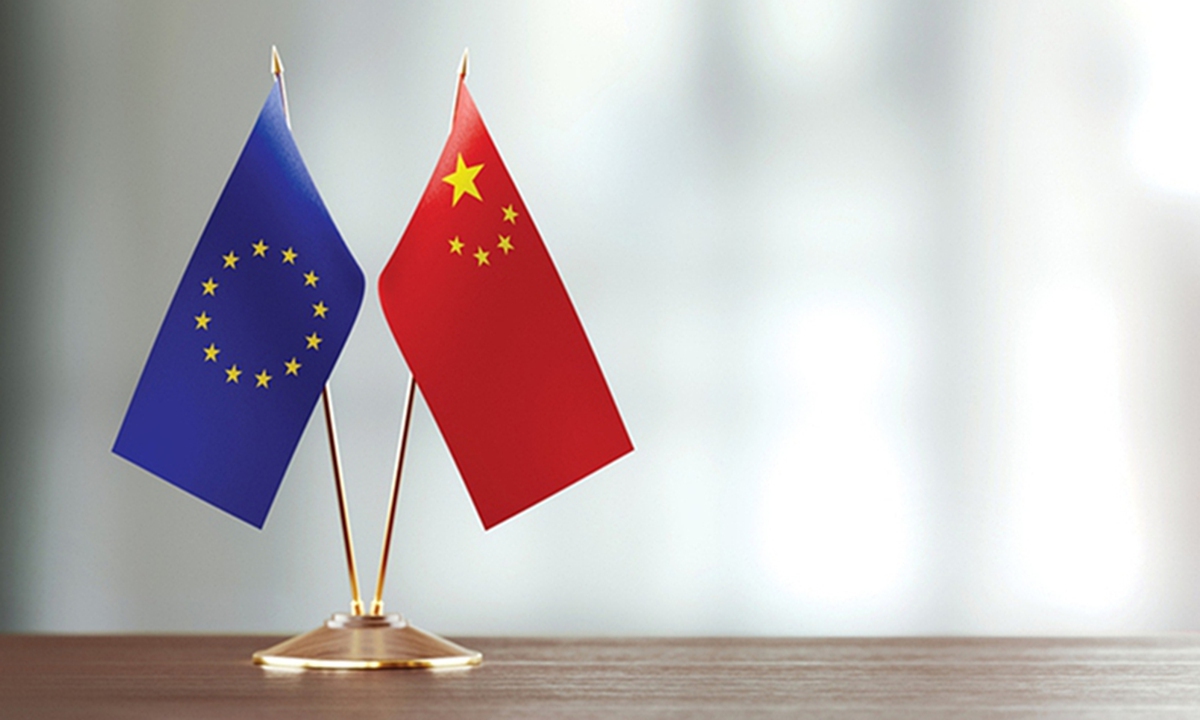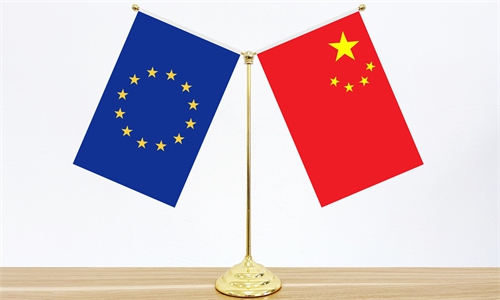EU reportedly mulls probe of China's medical device procurement, sparks concern for potential impact on businesses

China-EU Photo: VCG
The EU is reportedly set to launch a probe into Chinese medical device procurement. Experts and industry insiders anticipate that this move, which comes after recent EU actions targeting China's wind turbines and electric vehicles, will escalate bilateral economic tensions, affecting the normal business development of Chinese companies within the bloc.
The EU inquiry, which seeks to address concerns that Beijing's policies "unfairly favor domestic suppliers," may be announced as early as this week and could result in the bloc curtailing Chinese access to its tenders, Bloomberg reported on Monday, citing people familiar with the matter.
The probe will collect information from companies and member states, and its primary aim is to enter into a dialogue with China to ensure that markets are fair and open, the report said.
The reported plan drew the immediate attention of Chinese business groups in the EU, with the China Chamber of Commerce to the EU (CCCEU) closely monitoring the situation, the chamber told the Global Times in a statement on Tuesday.
In terms of government public procurement, China and the EU are maintaining communication. During the EU-China High-Level Economic and Trade Dialogue held last September, both sides discussed the situation regarding medical devices.
China has been taking an open stance on welcoming foreign medical devices, including those from Europe. Industry data released by Joinchain, a consultancy, shows that in 2023, China's medical device imports stood at $49.403 billion, with Europe ranking first with 48.03 percent of the total imports.
The EU's probe would constitute a first outing for its so-called International Procurement Instrument, or IPI, a 2022 law that's meant to promote reciprocity in access to public procurement markets, according to media reports.
The IPI serves as EU's "last resort" to facilitate access to the government procurement markets of third countries, effective since 2022. The IPI includes mechanisms for consultation and negotiation with third-country governments, but the EU can also ultimately prevent non-EU companies from entering its procurement market, according to the CCCEU.
According to a survey conducted by the CCCEU of 180 Chinese companies and institutions in the EU, 21 percent of the respondents expressed concern about the potential impact of the IPI on their business.
The EU has been working on multiple probes of Chinese products ranging from wine turbines to electric vehicles over so-called subsidy concerns. The IPI probe, if takes place, will intensify the economic situation between China and the EU, experts said.
The reported plan for investigation would be motivated by similar factors of protectionism as the withdrawal by CRRC Qingdao Sifang Locomotive from public procurement tenders following the commission's investigation under the Foreign Subsidies Regulation, Yang Chengyu, an associate research fellow at the Institute of European Studies of the Chinese Academy of Social Sciences, told the Global Times on Tuesday.
Yang expressed concerns about EU's growing protectionist tendencies, saying EU's excessive use of "protectionist tools" to intervene in any area it deems "unfair" or uncompetitive is worrying.
The CCCEU hopes that the EU will handle European companies' concerns properly through dialogue, negotiation, and existing high-level and multi-dimensional communication mechanisms, rather than resorting to unilateral "deterrence" tools, which may affect the normal operation and development of Chinese companies in Europe.
Global Times

